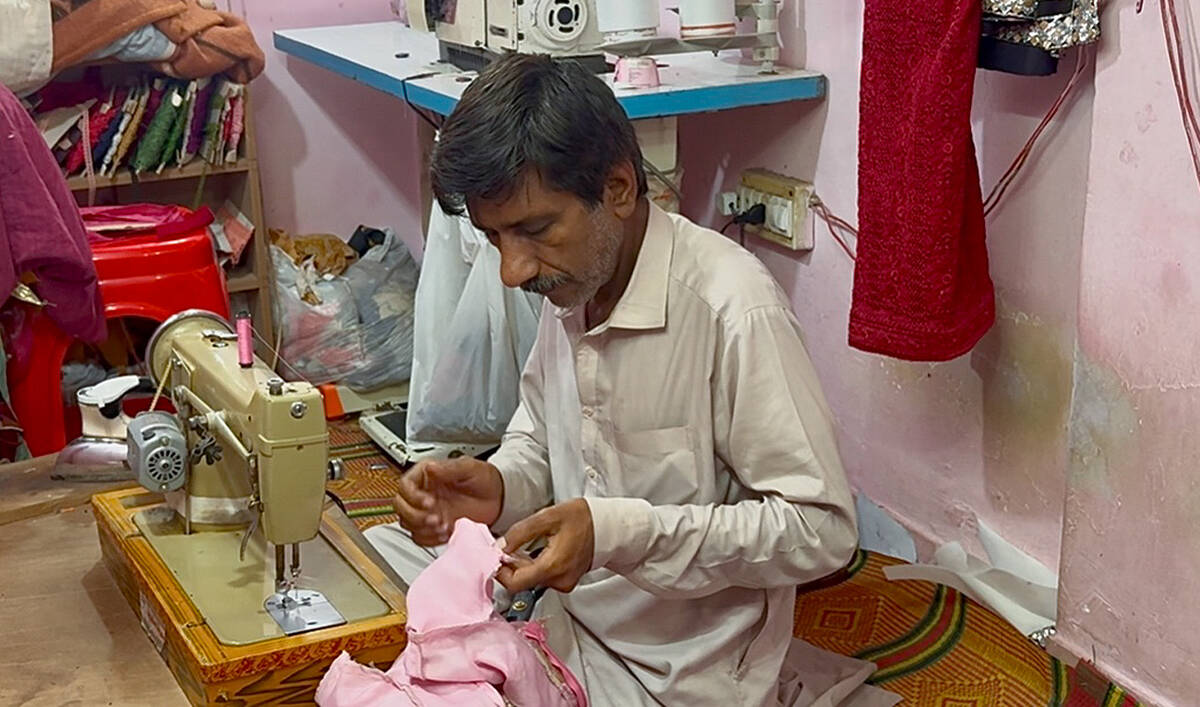KARACHI: Pakistan’s stocks ended the week on Friday with a 2.5 percent weekly gain, with the benchmark KSE-100 Index hitting a record high as investors expected a positive outcome from the country’s ongoing talks with the International Monetary Fund (IMF) under the first review.
The last trading session of the week witnessed the stocks gauge rising to 119,405 points during the day before closing in the red at 118,442 points, 0.3 percent lower than the last close due to profit-taking.
An IMF staff mission left Pakistan last week after concluding a visit that lasted for over half a month, with its chief, Nathan Porter, issuing a statement saying the two sides “made significant progress toward reaching a Staff Level Agreement,” triggering a bull run at the Pakistan Stock Exchange.
“The week commenced with the completion of the IMF mission’s visit to Pakistan for the first review of the ongoing $7 billion Extended Fund Facility, though a staff-level agreement remains awaited,” he said.
Pakistan, he continued, was also in the process of securing an arrangement under the Resilience and Sustainability Facility (RSF) with the IMF for additional financing to address the impacts of climate change.
Pakistan is one of the world’s most affected nations by climate change and has witnessed extreme weather events like floods, droughts and heatwaves. The country is seeking about $1.5 billion in climate financing from the global lender, which is currently evaluating the country’s request.
The Karachi-based brokerage research firm Arif Habib Ltd. said the market remained “jubilant” during the week as investor sentiment was supported by expectations of a staff-level agreement between Pakistan and the IMF that will lead to the disbursement of $1.1 billion to Pakistan.
The IMF, it said, shared a draft of the Memorandum of Economic and Financial Policies with the authorities in Pakistan, which signaled progress.
“Furthermore, potential resolution of power circular debt charged up the overall sentiment,” it said.
The IMF has also allowed the government to recalibrate its Rs12.97 trillion tax collection target for the current fiscal year to Rs12.35 trillion.
“We expect the market to remain positive in the upcoming week,” said the research firm. “The equity investors will closely follow developments leading up to Pakistan’s pact with the IMF that is projected to keep the momentum at the bourse buoyant.”
Pakistan stocks post 2.5% weekly gain as IMF talks fuel investor confidence
https://arab.news/nacxx
Pakistan stocks post 2.5% weekly gain as IMF talks fuel investor confidence

- The bullish sentiment was triggered by a recent IMF visit, raising hopes for a staff-level agreement
- Analysts expect the market to remain positive as Pakistan seeks $1.5 billion in IMF climate financing




















